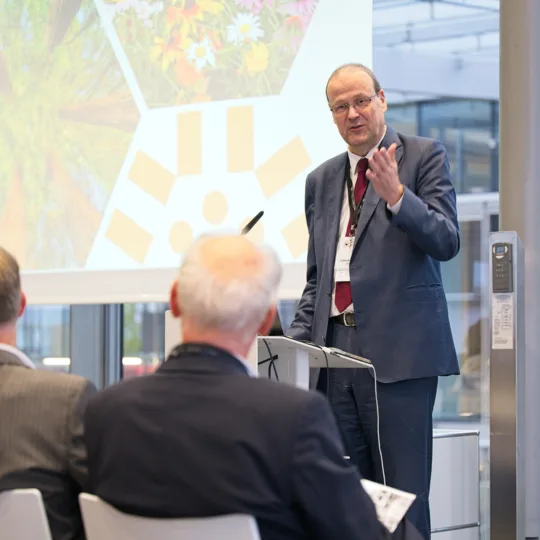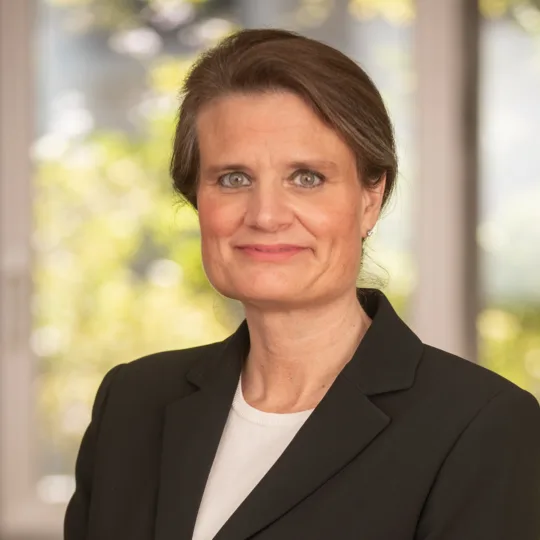Entrepreneurship education: Swiss expertise on show in Cyprus
On 27 June 2024, a conference was held on the topic of entrepreneurship education. It was organised by Cyprus in collaboration with the UNECE and SERI. One of the key topics of the conference was education for sustainable development and its influence on entrepreneurship teaching. Swiss experts also shared their views on the subject.
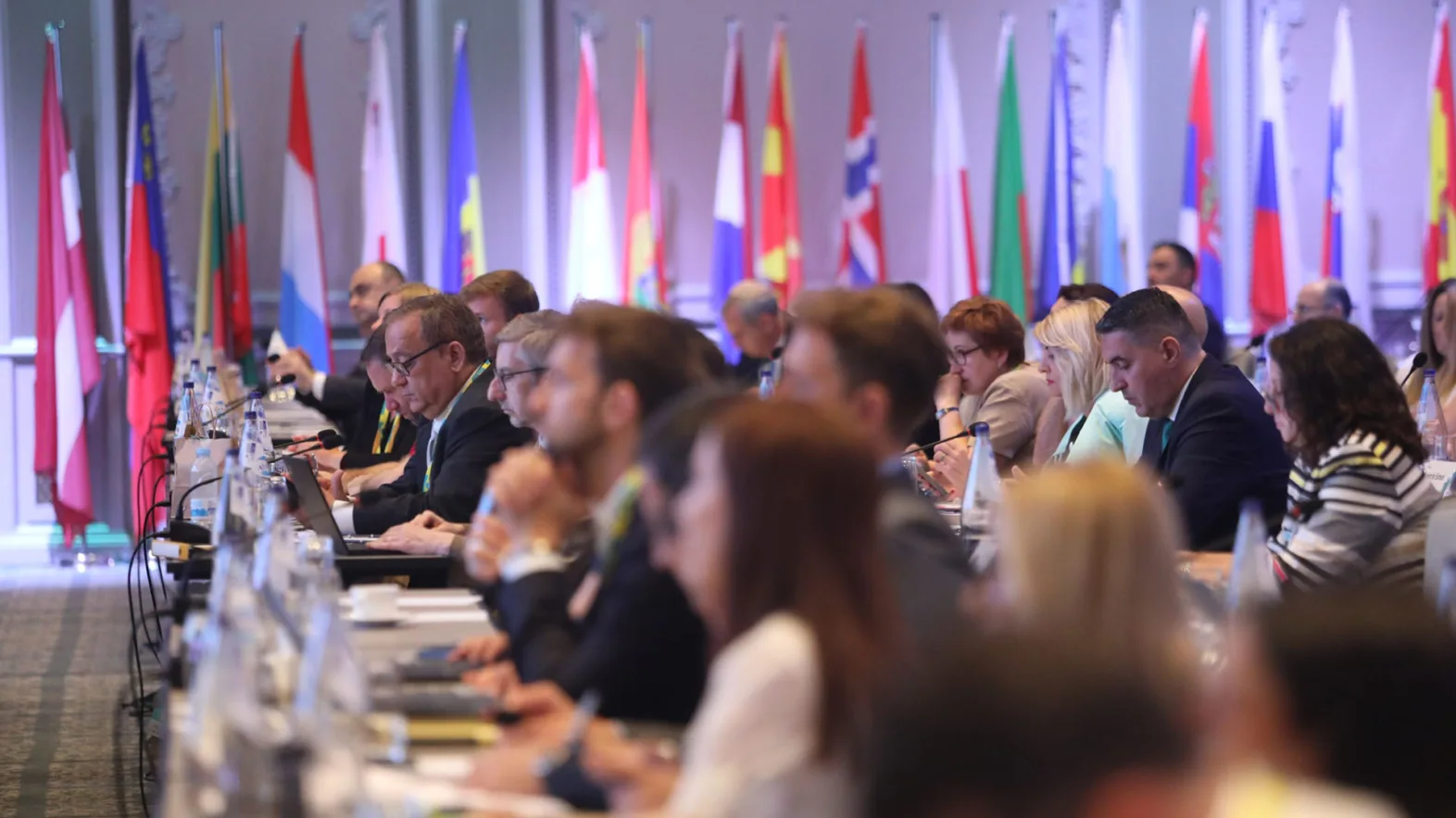
The conference, hosted by the Ministry of Education, Sport and Youth of the Republic of Cyprus, was organised in collaboration with the United Nations Economic Commission for Europe (UNECE) and SERI. It looked at how education for sustainable development could influence the teaching of entrepreneurship with a view to having a positive environmental, social and economic impact for a sustainable future.
Europe is currently engaged in a debate on the transformation of economic systems as a crucial step towards sustainability. The implementation framework of the UNECE Strategy for Education for Sustainable Development (ESD) from 2021 to 2030 represents a decisive step towards the holistic integration of ESD at all levels of education and in all sectors of society. It sets out four lines of action, including the «Entrepreneurship, employment, innovation and ESD» priority area. SERI supports the implementation of this priority area as part of its contribution to the UNECE Steering Committee for ESD.
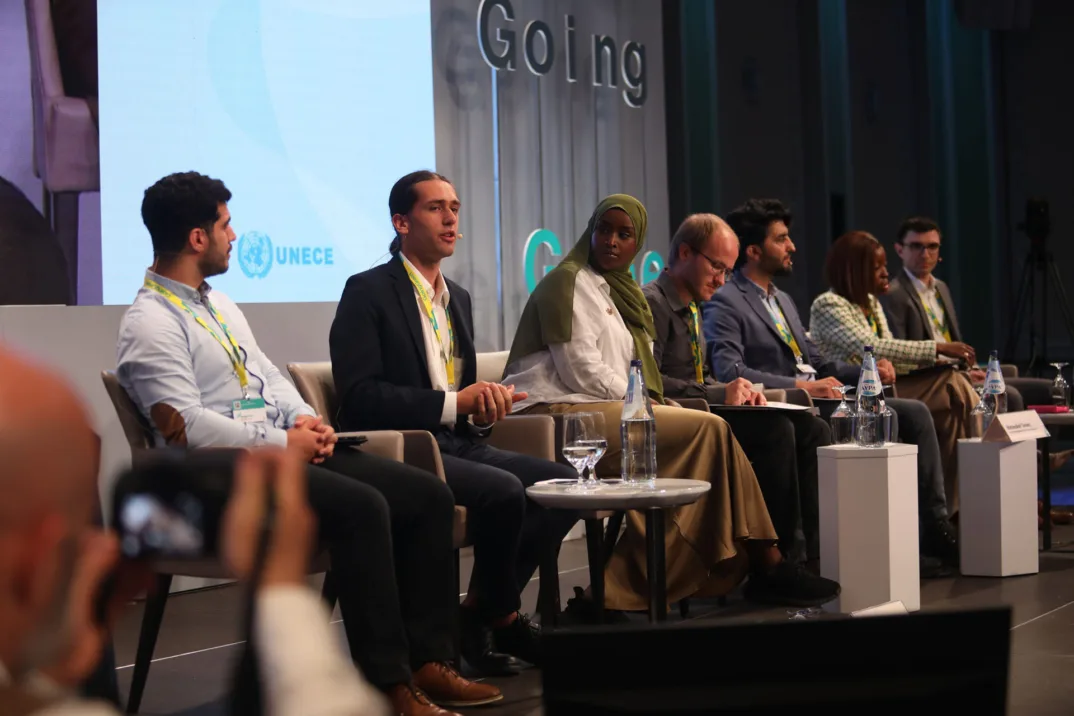
Entrepreneurship education
Entrepreneurship education plays a central role in the acquisition of a range of skills – creativity, ability to solve problems, the aptitude for risk-taking – all of which are necessary for positive change. In turn, ESD fosters critical thinking, promotes global citizenship and deepens the understanding of economic, environmental, cultural and social issues. Integrating ESD into entrepreneurship education is essential for empowering youth to build a more sustainable and equitable future.
The conference encouraged UNECE member states to use education for sustainable development as a means of strengthening entrepreneurship and innovation among young people, accelerating the transformation towards sustainable development, and enhancing the employability of young people by bettering their skills. Young people played an important role in the conference. Switzerland was represented by Florian Hebeisen, a member of the committee of the Swiss National Youth Council. He and his colleagues stressed the importance of involving young people in the whole process, particularly in projects in the field of education.
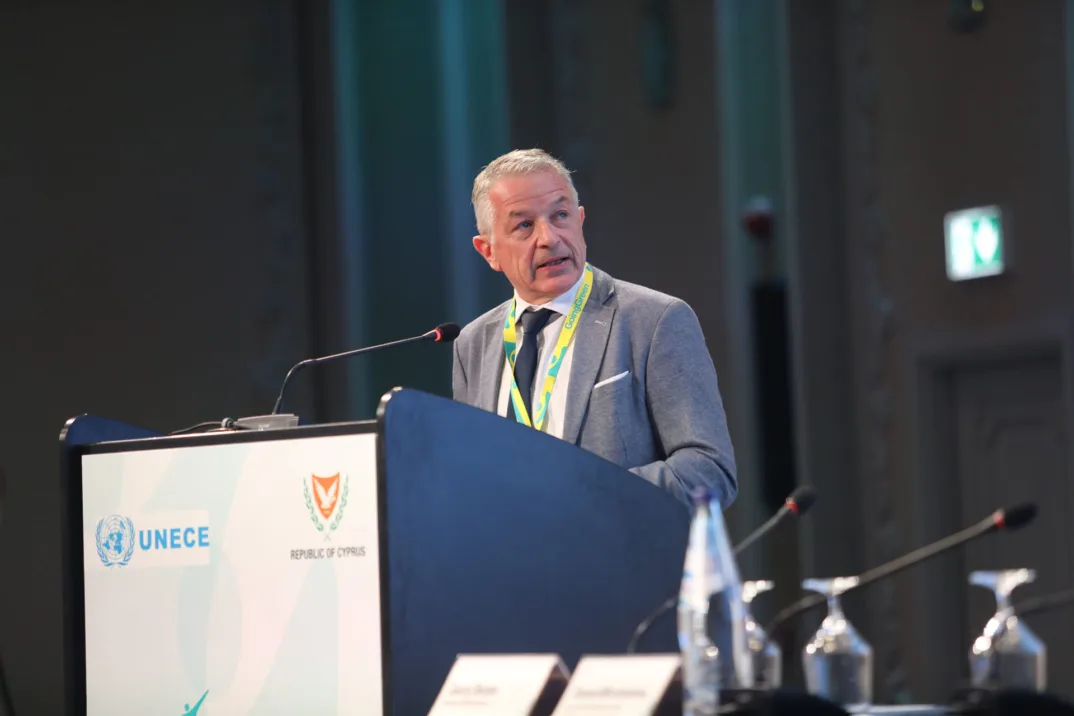
Swiss expertise
The Swiss Centre for Entrepreneurial Thinking and Action (scETA) is helping to incorporate such skills in initial vocational training at national level. Three experts brought their Swiss expertise to the conference, giving keynote speeches, moderating panel discussions and leading workshops.
Georg Berger, director of the vocational education and training centre in Olten (BBZ Olten) and chairman of the scETA, gave a presentation on the centre and its activities. He outlined the way in which entrepreneurship should be introduced into the teaching of general culture as part of initial vocational training.

To succeed in integrating entrepreneurship education into ESD, it is essential to strengthen critical thinking. Susan Müller, vice president of the scETA and professor of entrepreneurship at the Bern University of Applied Sciences, made this point at a round table discussion. In her view, critical thinking should be applied to all stages of the entrepreneurial process. It is also important to understand how to get the various stakeholders to work together to create a more sustainable economy and society. Ms Müller also led a session with representatives from the UK, Moldova, Armenia and Cyprus aimed at promoting the integration of entrepreneurship in education for sustainable development in these countries.
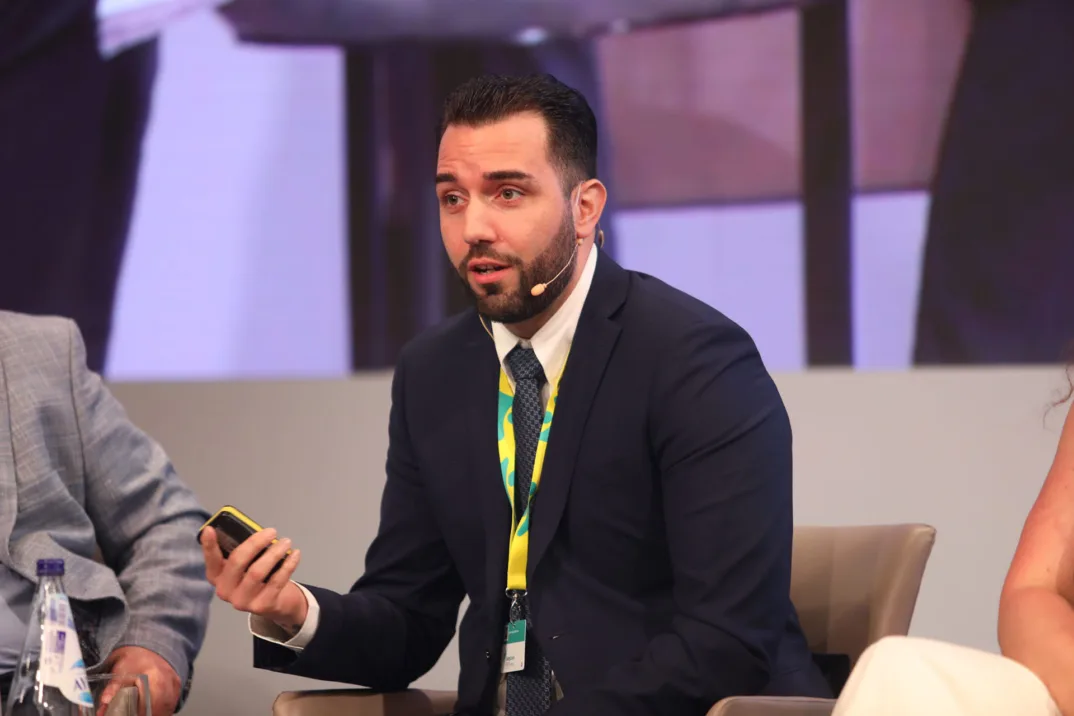
Finally, Leandro Bitetti, head of the Master of Science in Business Administration programme with specialisation in innovation management at the University of Applied Sciences and Arts of Southern Switzerland (SUPSI), emphasised the urgent need to develop new tools for the teaching of entrepreneurship. These tools should be based on sustainability principles in order to enable companies and individuals to achieve a high environmental, social and governance (ESG) impact. Mr Bitetti pointed out that, in a rapidly changing entrepreneurial and business landscape, new challenges cannot be fully met with existing, generic tools and methods. In a session he moderated, he also spoke about the transformation of learning spaces. Traditional classrooms, which are designed for lecture-based teaching, should be transformed into environments that encourage challenge-based and experiential learning. This change requires continuous learning on the part of educators to adapt to the cultural evolution in education.
UNECE
The United Nations Economic Commission for Europe (UNECE) was set up in 1947 by the United Nations Economic and Social Council (ECOSOC). UNECE’s main objective is to promote pan-European economic integration. To this end, it brings together 56 countries from the European Union, Western and Eastern Europe outside the EU, South-Eastern Europe, the Commonwealth of Independent States (CIS) and North America. SERI represents Switzerland on the UNECE Steering Committee for Education for Sustainable Development.
Contact
Author


